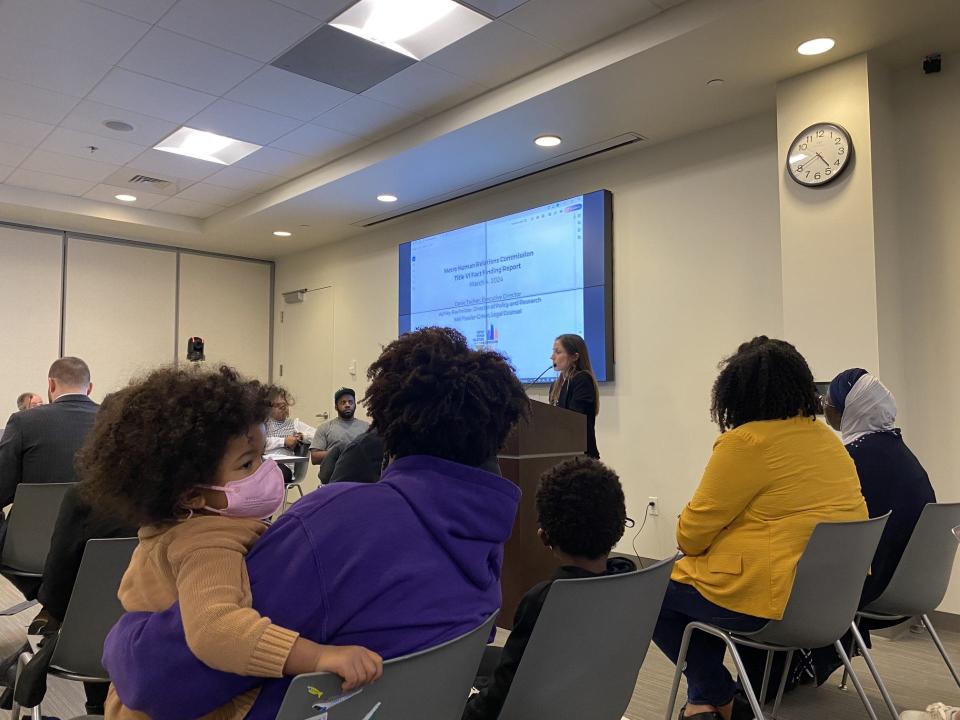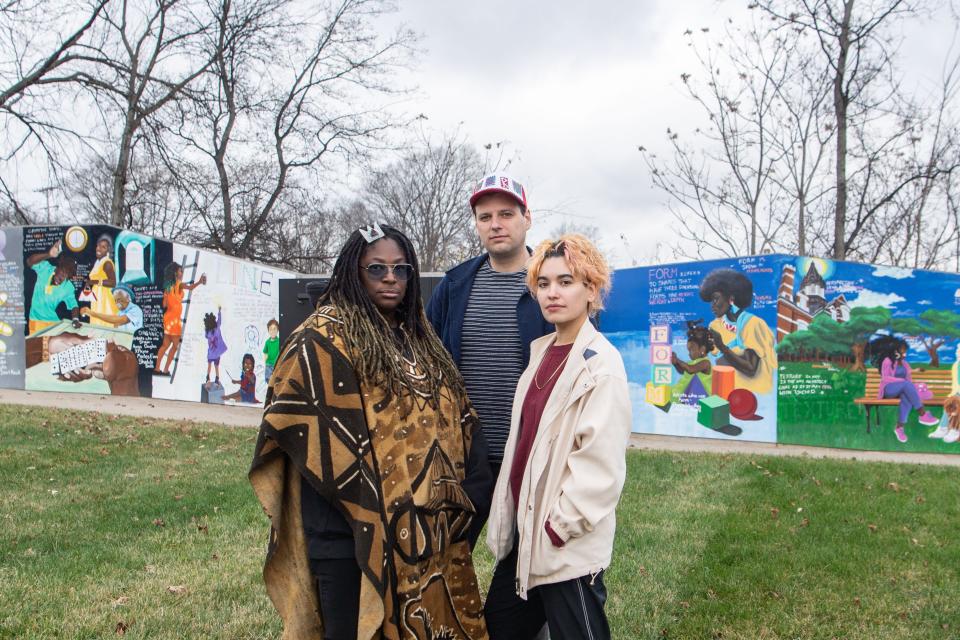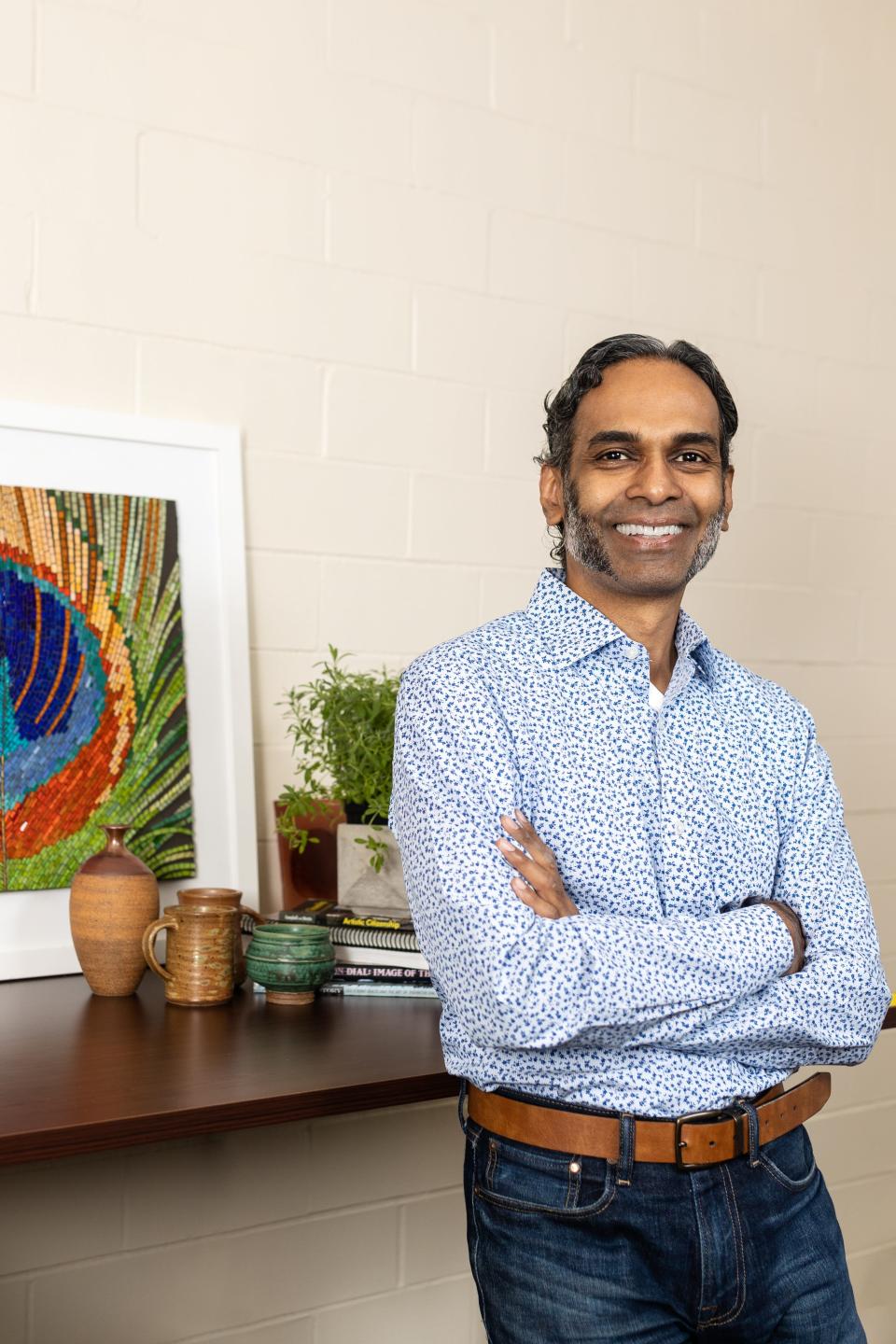Nashville must ensure that Metro Arts delivers on its antiracism commitment to artists
Metro Human Relations Commission (MHRC)is offering us an antiracist path to repair the harm from Metro Arts’ August 2023 vote – we should honor this recommendation.
My return from Family and Medical Leave Act (FMLA) has been held up by technicalities and I hope to return soon in service to Nashville artists.
I ended my Jan. 19 guest opinion column in The Tennessean by asking, “How does Metro Arts facilitate fair and just opportunities for the different expressions of the peoples of Nashville to be well-resourced, visible, and thriving?”
Nashville Mayor: Artists, organizations to receive grant funding after months of turmoil
Patron-class organizations received bulk of Nashville taxpayers' money
In July 2022, I began answering that question by analyzing Metro Arts’ 35 year funding history. Troubling disparities emerged – 88% of funding had gone to organizations with budgets over $500,000, and Metro Human Relations Commission’s March 2024 report found that 70% of funding has gone to only 10 organizations.

The majority of these organizations are patron class, i.e., organizations founded by capital and managerial classes rather than working artists – and suddenly a wealthy person’s cultural priority became taxpayer responsibility.
Evidence of this can be seen in the fact that the Fisk Jubilee Singers, founded in 1871 and recognized with a National Medal of Arts, has never been funded by Metro Arts.
Hillombo Consulting offered and I agree with a definition of racism as a process that facilitates and rationalizes colonialism/neocolonialism’s theft of resources; therefore, antiracism must redistribute and reframe what has been stolen.
I began my work implementing Metro Arts’ commitment to antiracism by first owning that by the specific type of work and my class position, I am complicit in and have internalized racism. To combat our own participation, we worked hard to center previously ignored voices back into Metro Arts.

We worked to democratize Metro Arts grant and public art panels, collaborated with artists by editing and simplifying previously cumbersome grant applications, and encouraged artists to participate via public comments.
Individual artists were unfairly accused of getting an advantage
Commissioners have inquired how to ascertain that individual artists were not spending their funding at Kroger, but is anyone else being asked that question?
Patron class organizations host lavish galas, have either restructured from bankruptcy, or have shifted their private Eurocentric interests onto taxpayers.
Individual artists also hire other artists, solicit contractors, and have less of a cushion to take cuts. Yet we keep privileging patron class organizations, including the recent proposal to privatize the Metro Arts Thrive program for individual artists.
If privatization is such a good idea, why aren’t we suggesting it for organizations with budgets over $500,000 instead?
When patron-class organizations use development or grant staff to write their applications, it is perceived as “professional.” Yet, when we provide similar services via grant clinics for individual artists, it is portrayed as an unfair advantage.

Thrive has been around since 2015, with many of the same finance/legal directors and staff allowing the initiative to move forward under white executive directors. Why is Thrive suddenly a problem just as it is poised to make a material difference in the lives of artists who have been systematically barred?
The Arts Commission got it right in the July 2023 vote that acknowledged Metro Arts’ participation in structural racism. In August 2023, the Commission was misled regarding an unrelated Affirmative Action ruling by actors who have since resigned.
MHRC’s recommendation to go back to the July 2023 vote gives the Arts Commission a rare second chance. It is time for Metro bureaucracy to stop hampering efforts meant to address Metro Arts’ racist history.
Some say change is happening too quickly, despite this decades long disparity; I say this change is actually almost too little, too slow. But there is hope still. The Arts Commission must act to address our participation in structural racism by honoring MHRC’s recommendation.
Daniel Singh is the executive director of Metro Arts and is committed to antiracist practices in the arts. He is grateful to Justin Laing for his editorial guidance.
This article originally appeared on Nashville Tennessean: Nashville arts: Deliver on antiracism commitment to individual artists

